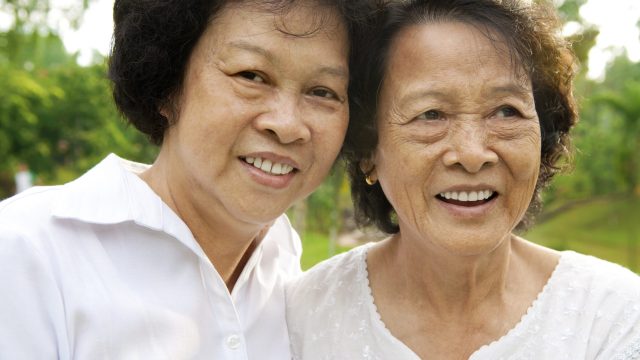What’s Public Health Got to do with… Healthy Aging?

By Karon Phillips & Megan Wolfe
Quotes from Chuck Henry, Florida Department of Health in Sarasota
The COVID-19 pandemic has made it starkly clear that public health agencies across the country must be prepared to understand and meet the health and social challenges of people who are living longer lives. These challenges are often complex because the longer we live, the more likely we will be managing multiple health issues and needing supports and services in our daily lives. Promoting health across the entire life course is a crucial public health strategy in any state or community. To ensure public health practitioners are prepared to support older adults during the COVID-19 recovery, and to meet their needs during the next emergency, some health departments have recognized the need to become age-friendly and now is the time for all to join the movement.
Trust for America’s Health (TFAH), in partnership with The John A. Hartford Foundation, began to prioritize healthy aging in 2017. TFAH has been working to build the capacity of public health departments to identify needs of the older adults in their communities and determine how to expand their policies and systems to meet these needs. Understanding that some health departments are well are on their way to becoming age-friendly and some need further incentive to do so, TFAH identified a series of actions that can be taken that are fundamental for this transition. These steps are now embodied in TFAH’s Age-Friendly Public Health Systems Recognition Program.
Health departments that take action on all of the 10 steps in the program will have created a culture of healthy aging and increased their awareness of how programs and systems can embrace older adults in their community. Most of the steps can be acted on with little additional funding or staff but still yield important and sustainable results. These include actions like improving data systems to provide a clear picture of the health of a community or the state’s 65+ population, identifying and partnering with other sectors that already work with and serve older adults, and including older adult health needs in assessment and planning activities.
To help us articulate the importance of embracing healthy aging, we asked a recently recognized age-friendly department of health – the Florida Department of Health in Sarasota (DOH-Sarasota) – to share their reflections on achieving recognition.
The DOH-Sarasota team noted that “while there was work involved, achieving this recognition was not difficult. We found that once we actually looked at the work, we were doing through the lens of the 10 action steps, we found that we were already doing most of them. The action steps also helped us focus on the importance of outcomes related to the actions.”
The DOH-Sarasota team added, “What we really liked about the recognition process was that it helped us connect the ‘what’ we were doing with the ‘why it was important.’ In these times of limited resources, being able to articulate the public health outcomes behind our efforts has tremendous value. Documenting evidence of actions in the ten steps helped us articulate those outcomes in very local and tangible ways.”
October’s blog: What’s Public Health Got to do With… Fall Prevention?